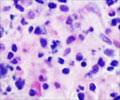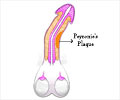Highlights:
- A pen-like device
that can differentiate between normal and cancerous tissue based on the
principle of mass spectrometry has been developed.
- It detected
cancers with a 96% accuracy when tested on tissue samples.
- Further testing
and approval of the device is necessary before it can be routinely used.
A
handheld device based on mass spectrometry that can differentiate between
cancerous and non-cancerous tissues within seconds and can be used by surgeons
during surgery has been showcased at the South by Southwest's (SXSW)
interactive festival. A scientific paper on the device was earlier
published in
the Science
Translational Medicine.
When surgeons operate a
person with a cancer, they are often faced with the problem as to how much
tissue should be removed, since on naked eye, the demarcation is usually not
clear. Removal of too much tissue makes more tissue unavailable to the patient
for normal body functions, while leaving back even some cancerous tissue can
result in recurrence of the cancer. Currently, at times of doubt, frozen
sections of the tissue are made in the operating theatre and are quickly
analyzed by the pathologist, which give the surgeon an idea of how much tissue
should be surgically removed. This approach does take a few minutes and
prolongs the duration of the surgery.
‘A handheld device that can detect cancers has the potential to be used to differentiate between normal and cancerous tissue during surgery.’
The new device works on
a different principle. It is a simple pen-like hand-held
instrument that is attached to a mass
spectrometry analyzer
and monitor. When the pen comes in contact with the tissue and is triggered
with the help of a pedal, a drop of water in the pen extracts molecules from
the tissue, which then go into the analyzer and the results appear on the
monitor within seconds. Some of the potential advantages of using the device
are as follows:
- The device allows
a quick evaluation of the tissue and speeds up the surgery.
- It eliminates the
need for an access to a pathologist during the surgery to assess a frozen
section.
- When the pen was
tested in mice during surgery, it could accurately differentiate between
cancerous and non-cancerous tissue.
- The pen is biocompatible,
that is, it does not damage the tissue that is comes in contact with, and
can therefore be possibly used directly on the human tissue while carrying
out the surgery, without the need to cut it out first. This is in contrast
with several other similar recent innovations, which damage the tissues on
contact.
- According to a
study done by the researchers, the
device was 96% accurate in detecting breast,
ovarian, thyroid, and lung in 300 slides of tissue samples
obtained from cancerous and normal tissues.
The device is yet
to be tested on a human during a live surgery. Also, it
has not yet been
approved by the US Food and Drug Administration. Thus,
it could take some time before it is available for use. If approved and proved
to be efficient in correctly detecting cancers, it could be another merger of
medicine and technology to improve the delivery of healthcare to patients.
Reference: - Zhang J et al. “Nondestructive tissue analysis for ex vivo and in vivo cancer diagnosis using a handheld mass spectrometry system.” Science Translational Medicine (2017): Vol. 9, Issue 406, eaan3968. DOI: 10.1126/scitranslmed.aan3968
Source-Medindia
















